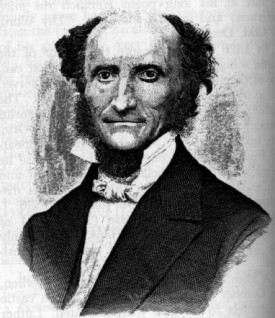| Movements
in Europe and America which reasserted the authority of Protestant
confessions to define the church. |
 |
|
C.
F. W. Walther (1811-1887) was a champion of confessional Lutheranism
in the United States, and founder of the Lutheran Church-Missouri
Synod
|
In 1817 King Frederick
of Prussia called for Lutheran and Reformed Christians to celebrate the
300th anniversary of the Reformation by holding a common service of worship
in Berlin. This was the beginning of a structural merger, known as the
"Prussian Union" church. In Prussia and elsewhere civil rulers attempted
to combine Lutheran and Reformed churches into unified national churches.
Several forces seemed to auger such a move: the Enlightenment
emphasized moral aspects of the faith and disparaged doctrine; Pietism
stressed spiritual experience which crossed over confessional lines; nationalism
vested authority in the state; liberalism
questioned and redefined religious authority. But plans to unify Protestant
churches met with stiff resistance. At issue: who decides what the church
is--the civil rulers, or the Scriptures and confessions? Some confessionalists
suffered persecution. Many immigrated to the U.S., where confessionalism
arose in various forms among Lutherans, Presbyterians, and others who
perceived evangelicalism and
liberalism as detrimental to theological identity.
|